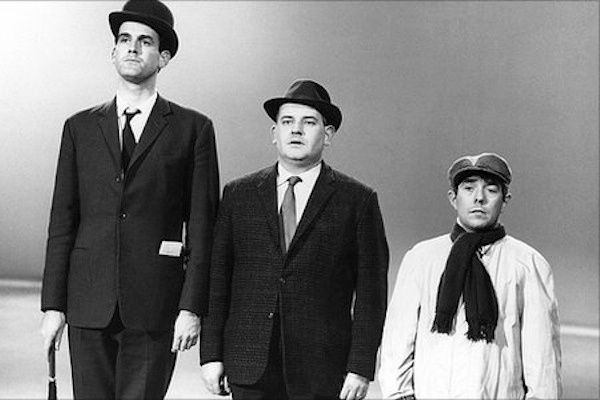One of the many things I’m grateful to my father for is inventing the word ‘meritocracy’. He coined it in 1958 to describe a society in which social status is determined by ‘merit’, which he defined as a combination of intelligence and effort. As a member of the Labour party, he thought that such a society was thoroughly undesirable because it was every bit as hierarchical as a feudal society, but in some ways even worse, because its pyramid-like structure was thought to be fair. In other words, it legitimised inequality and, for that reason, all good socialists had a duty to oppose it. He did his bit by writing a dystopian satire called The Rise of the Meritocracy, in which he described just what the meritocratic society of the future would look like. It wasn’t pretty.
The reason I’m grateful is because whenever a public figure brings up the subject of meritocracy — which is quite often — I get asked to comment and am usually paid to do so. You could say my father’s invention of the word ‘meritocracy’ has helped to support his useless layabout of a son — which is what some people would describe as ‘ironic’, except it isn’t really because my father disapproved of meritocracy, which is what I have to spend the first five minutes of every interview on the subject explaining.
Anyway, this week I got a call from the Today programme because Ben Bernanke, the chairman of the US Federal Reserve, gave a graduation speech at Princeton over the weekend in which he questioned whether a meritocratic society is fair. ‘Think about it,’ he said. ‘A meritocracy is a system in which the people who are the luckiest in their health and genetic endowment; luckiest in terms of family support, encouragement and, probably, income; luckiest in their educational and career -opportunities; and luckiest in so many other ways difficult to enumerate — these are the folks who reap the largest rewards.’
Now, you could take issue with some of this. If the people at the apex of the pyramid are there partly because of their parents’ income, your society can’t properly be described as a meritocracy. Unless, that is, the children of the rich happen to be the smartest and most industrious people around -— which isn’t true in my experience. But you can see what Bernanke’s driving at. Why do the most intelligent, energetic people deserve the rewards they get in a meritocratic society? Intelligence is largely a hereditary trait — and so, to a lesser degree, is the ability to work hard. Those traits are handed out at the moment of conception when we can’t possibly have done anything to earn them. So why is a meritocratic society any fairer than an aristocratic one? In both cases, success depends on being a member of the lucky sperm club.
You won’t be surprised to learn that Bernanke did not conclude by urging his audience to embrace socialism. His solution to this conundrum — let’s call it the problem of the undeserving rich — lies in doing good works. ‘The only way for even a putative meritocracy to hope to pass ethical muster, to be considered fair, is if those who are the luckiest in all of those respects also have the greatest responsibility to work hard, to contribute to the betterment of the world, and to share their luck with others,’ he said.
He went on to quote the Bible, though I have a better quote for him because I’ve been over this ground a hundred times before. It’s from Goethe and it’s quoted by my father in The Rise of the Meritocracy: ‘Really to own what you inherit/ You must first earn it by your merit.’
That’s a noble sentiment, but I’m not sure it works as a solution to the problem of the undeserving rich because it depends upon them volunteering to do good works. Again, not all that common in my experience. I prefer the answer provided by the libertarian philosopher Robert Nozick, who argued that the rich don’t have to prove that they deserve their wealth, only that they’re entitled to it, and while they might not have a strong claim, they usually have a stronger one than the state. But engaging in lots of philanthropy is probably a good idea, too, just in case the have-nots don’t see it that way.
And on that note, the West London Free School has set up a JustGiving page at www.justgiving.com/westlondonfreeschoolfoundation. All donations from the undeserving rich gratefully received.
UPDATE: As Toby suggested, the subject of meritocracy came up this morning and he was paid to comment on Radio Four’s Today programme. The presenter introduced him as writing for The Sun rather the The Spectator (we suspect neither publication is on his reading list, but if the Today programme’s political parameters were not so narrow, The Spectator wouldn’t be getting 350,000 weekly downloads for our own podcast, The View From 22, latest edition:
http://audioboo.fm/boos/1435154-toby-young-on-meritocracy







Comments